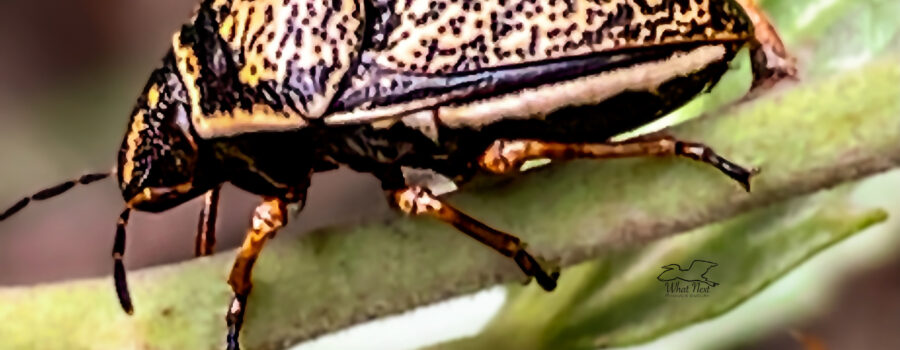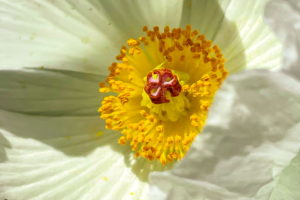Colorful Little Shield-Backed Bugs are True Bugs, Not Beetles

Last weekend the weather was quite pleasant in the early evening, so I took advantage of that and went on a short hike in the Gothe State Forest behind my house. When I returned home, I took a little time to pick some of the blackberries that had started to ripen early. In the process of picking berries, I came across this pretty little shield-backed bug (Orsilochides guttata). It was climbing around on one of the blackberry vines. At first it tried to stay hidden from me by purposefully staying on the opposite side of the vine from me. That gave me a bit of a chuckle, since as you’ll see below, the bug is much wider than the vine. After watching it for a few minutes, it quit trying to hide and went back to crawling around on the vines.

Shield-backed bugs are true bugs, although many people mistake them for beetles. They are closely related to stink bugs, and like stink bugs they have an enlarged thoracic structure known as a scutellum that covers the thorax and the abdomen. Also like stink bugs, shield-backed bugs can produce a foul smelling liquid that helps to deter predators. Together, stink bugs and shield-backed bugs make up the family Scutelleridae. Shield-backed bugs are also often called jewel bugs since many of the species have bright, metallic coloring. Many tropical species especially make this little black and gold bug look pretty dull.

Like stink bugs, shield-backed bugs eat plants, and some species (not this one, though) can have significant economic impact on several crop plants. Fortunately, our little black and gold friend eats mostly wildflowers such as these blackberry vines, goldenrod plants, and morning glories. They feed by injecting digestive enzymes into the plant and then drawing out the liquid through specialized mouth parts. This bug was by itself, but these guys have a tendency to be found in groups. It’s believed that this behavior helps to decrease predation, but this species is not well studied, so it’s not known for sure. I was pleasantly surprised to find this pretty bug that afternoon, and before long there will be enough wild blackberries out there that I don’t mind sharing.






Recent Comments